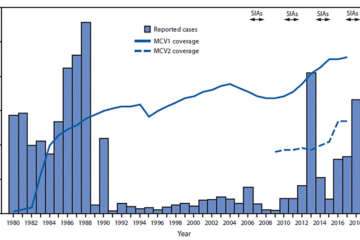Feds: Prescribe Covid-19 antivirals, not Z-Pak – POLITICO

On Tap
— The White House is ramping up efforts to get doctors to prescribe antiviral pills to more Covid patients.
— Senior FDA officials are headed to Capitol Hill to testifyabout pending user fee agreements and the agency’s fiscal 2023 budget request.
— FDA is expected to propose rules that would ban menthol cigarettes and flavored cigars roughly a year after the agency stated its intent to do so.
It’s Tuesday. Welcome back to Prescription Pulse.Yesterday was the perfect date, and we sure think it lived up to its legacy.
Send tips and feedback to David Lim ([email protected] or @davidalim), Lauren Gardner ([email protected] or @Gardner_LM) or Katherine Ellen Foley ([email protected] or @katherineefoley).
Coronavirus
The Biden administration urges all doctors to prescribe Paxlovid to treat Covid patients eligible to receive them, while the CDC warns doctors to stay away from prescribing antibiotics and steroids for the infection. | George Frey/Getty Images
BIDEN ADMIN: DOCTORS SHOULD PRESCRIBE PAXLOVID TO ALL ELIGIBLE — The Biden administration is launching a fresh push today to get health care providers to prescribe Covid-19 antivirals to all patients eligible to receive them.
Under the plan, first reported by David and POLITICO’s Adam Cancryn on Friday, all pharmacies in the federal antiviral pharmacy program will be allowed to order the pills from the federal government. The administration expects the number of locations where people can obtain antiviral treatment to soon grow from about 20,000 sites to more than 30,000 — eventually reaching 40,000 places “over the coming weeks.”
The Biden administration wants the U.S. “to stop operating in a scarcity mindset” when it comes to antiviral treatments for eligible Covid-19 patients. Initially, a “tranche of 100,000 courses” of Paxlovid will be made available through the pharmacy channel.
“There are still some folks who could have benefited from these medications,” a senior administration official told reporters. “So we certainly know that there is more room to go. We can save more lives by getting this medication to more people.”
CDC: STOP PRESCRIBING ANTIBIOTICS, STEROIDS FOR COVID — On Monday, CDC issued a health advisory warning doctors against prescribing antibiotics or steroids to nonhospitalized Covid-19 patients with mild to moderate cases. Agency data suggests those drugs have increasingly been used to treat Covid outpatients, and a CDC-funded study recently found that 30 percent of outpatient Covid visits among Medicare beneficiaries were linked to an antibiotic prescription during the pandemic’s first year.
“However, these drugs can cause harm and provide no demonstrated benefit in patients with COVID-19 with no supplemental oxygen requirement or bacterial coinfection,” CDC said in the alert.
A senior administration official declined to say how many health care providers are inappropriately prescribing antibiotics or steroids to Covid-19 patients when asked on a press call Monday night.
“I’m not in a position to comment on that, but we can look into it,” the official said.
By the way: Covid was the third-leading cause of death in the U.S. in 2021, CDC said Friday.
FDA EXTENDS REMDESIVIR APPROVAL TO KIDS — FDA expanded its approval for the Covid-19 treatment remdesivir Monday to include pediatric patients as young as 1 month old and approximately 7 pounds, whether they’re hospitalized or at risk of being hospitalized for the disease. The decision makes the injectable drug the first Covid treatment approved for kids under 12.
In Congress
FDA CENTER DIRECTOR DERBY — The leaders of FDA’s drug, biologic and medical device centers are testifying before the Senate HELP Committee this morning on user fee agreements. Here’s a preview of what two senior lawmakers plan to focus on:
Chair Patty Murray (D-Wash.) will press the directors about the timeline for Covid vaccines for children under 5 and for an update on when the agency will implement over-the-counter hearing aid sales as required by law, according to a committee aide. She’ll also question officials about oversight of cosmetics and supplements.
Expect some tough love from ranking member Richard Burr (R-N.C.) during his opening remarks at the hearing. The top Republican on the committee plans to press agency officials on accountability when user fee program goals are not met.
“I deeply value and believe in the mission of the Food and Drug Administration, which is why the commitments that FDA makes are so important, and the goals it misses are so concerning,” Burr plans to say in his opening statement.”
FDA GOES TO WASHINGTON PART TWO — Commissioner Robert Califf will take over the mantle of congressional testimony from his deputies later this week; the FDA chief is scheduled to testify on his agency’s fiscal 2023 budget ask before the Senate Appropriations Agriculture Subcommittee on Thursday. He was also scheduled to appear before the House Appropriations Agriculture Subcommittee on Wednesday, but that hearing has been postponed, per the committee website.
Alliance for a Stronger FDA executive director Steven Grossman argued that most people understand FDA’s budget has to grow because the agency has taken on more work to “meet our national needs.”
“Congress has been supportive in the past, and we trust that will continue after the House and Senate appropriations subcommittees hear the details directly from agency leadership,” Grossman said.
MCKINSEY IN THE HOT SEAT FOR FDA, OPIOID WORK — Bob Sternfels, global managing partner at McKinsey & Company, will testify before the House Oversight Committee on Wednesday about his company’s work consulting simultaneously for FDA and opioid manufacturers like Purdue Pharma.
Sen. Maggie Hassan (D-N.H.) will question FDA center directors about those potential conflicts of interest and what actions, if any, the agency has taken against the firm.
HOUSE MAJORITY WHIP ASKS FDA FOR BRIEFING ON VACCINES FOR YOUNGEST KIDS — Rep. Jim Clyburn (D-S.C.), chair of the House Select Subcommittee on the Coronavirus Crisis, asked FDA to provide a staff briefing on the status of Covid-19 vaccines for kids younger than 5. In a Monday letter to FDA Commissioner Robert Califf, Clyburn asked the agency to confirm whether it would delay evaluating the Moderna and Pfizer-BioNTech Covid-19 vaccine for young children until the summer to do so simultaneously, after POLITICO reported FDA was considering doing so last week. Moderna is expected to seek authorization for its Covid-19 vaccine for kids before May, whereas Pfizer isn’t expected to do so until June.
After chief White House medical adviser Anthony Fauci confirmed POLITICO’s reporting last week in an interview with CNN, Clyburn noted that such a move could delay the rollout of Moderna’s vaccine by weeks. He asked FDA to provide his office with more information and any scientific justification around it by May 9.
Tobacco
FDA is moving closer to banning menthol cigarettes and cigars — popular among Black smokers — sparking debate among public health and civil liberty groups. | Getty Images
PROPOSED BANS ON MENTHOL CIGS, FLAVORED CIGARS EXPECTED THIS WEEK — FDA is expected to issue two tobacco product standards this week after both cleared the White House’s Office of Management and Budget late Thursday, Katherine reports. These proposed rules would ban all menthol cigarettes, which make up roughly one-third of the cigarette market, and all flavored cigars. FDA first said it would issue those proposed rules a year ago.
A major issue for Black smokers: More than eight in 10 Black smokers use menthol cigarettes, partly due to extremely targeted advertising by tobacco companies. The burden of menthol-related disease and death falls disproportionately on Black Americans.
Public health and civil liberty groups weigh in: On Friday, 77 public health, medical, education and community organizations wrote to FDA Commissioner Robert Califf urging the agency to issue and finalize both proposed rules, arguing they will save Black lives. The NAACP issued a similar statement in support. However, civil liberties groups like the American Civil Liberties Union and civil rights activist Al Sharpton have argued that the ban will lead to a dangerous rise in policing of Black communities as many flock to illicit menthol cigarettes instead. (FDA can only regulate manufacturers, not consumers.)
As soon as FDA issues these proposed rules, they will remain open for public comment for at least 60 days. FDA must then respond to every single comment before issuing a final rule. “I’m going to guess it’s at least a year” from when FDA proposes these rules to actually enforcing them, said Joelle Lester, the director of commercial tobacco control programs at the Public Health Law Center in St. Paul, Minnesota.
Pharma Worldwide
PHARMA COMPANIES, CHARITIES SAY IP WAIVER WON’T HELP VACCINATION EFFORT— Pharmaceutical executives and charity groups told members of Canada’s parliament Monday that intellectual property is not the main barrier to getting Covid vaccines in arms in developing countries, POLITICO’s Maura Forrest reports. The larger challenges are distribution, health care capacity and vaccine hesitancy, Lily Caprani, global lead for UNICEF’s pandemic response, said in a committee meeting.
BIOGEN NIXES APPLICATION FOR ALZHEIMER’S DRUG IN EUROPE— Biogen withdrew the application for its Alzheimer’s drug, Aduhelm, from the European Medicines Agency’s consideration, POLITICO’s Sarah-Taïssir Bencharif reports. The company said it made the decision after it became clear from interactions with the agency’s scientific committee that the drug would not receive a positive opinion based on the data provided so far.
Quick Hits
For the L.A. Times, Emily Baumgaertner shows how large tobacco companies are leveraging fear of police brutality to generate opposition to the forthcoming proposed menthol cigarette ban.
AgencyIQ
Here are some highlights from our colleagues over at AgencyIQ, the regulatory insight platform for FDA.
Legislation would overhaul distribution of drug product labeling — New legislation introduced late last week by a bipartisan group of legislators in the House of Representatives would permit some drug companies to provide electronic, rather than printed, versions of their drug labeling. At present, the FDA requires that information about the risk and benefit of the drug product be available in print form at the time the drug is dispensed unless the drugs are intended for use in health care facilities or by a health care professional. The Prescription Information Modernization Act of 2022 would expand this exemption to permit that drug prescribing information be “made available solely by electronic means.” However, patients could still request paper-based labeling, and the drug manufacturer would need to be able to “promptly” make such information available “without additional cost.” The bill would only apply to new drugs — not generic drugs or biologics.
FDA to study how consumers, physicians assess drug tradeoffs — Physicians and patients might differ in how they calculate the tradeoffs of drugs to treat various conditions, though little is currently known about how these two groups might see things differently. The FDA’s Office of Prescription Drug Promotion last week proposed a survey-based study to tease out how the groups might weigh these tradeoffs when presented with pharmaceutical promotional materials. “The treatment preferences of diagnosed consumers and treating physicians have been shown to be influenced by certain characteristics, such as the perceived drug’s impact on quality of life, complexity of dosage regimens, mode of administration, cost to family and self, and marketing claims unrelated to medicinal properties,” FDA explained. The study plans to enroll 1,600 adult participants, 800 consumers and 800 physicians.








